Those who highlight Taiwan’s vulnerabilities without offering constructive remedies to them are helping Beijing weaken the psychological confidence of the people of Taiwan in their future while raising the economic and geopolitical risk profile of Taiwan, writes Ryan Hass. This plays into Beijing’s hands as it prefers Taiwan to feel isolated and vulnerable. This piece originally appeared in the Taipei Times.
There has been a dizzying number of doomsday predictions about Taiwan’s fate in recent months. Former American officials have been forecasting Chinese military actions against Taiwan. Historians and grand strategists have been offering breathless analogies about Taiwan as Suez, Dunkirk, Cuba, or Kuwait. A prominent magazine even has described Taiwan as “the most dangerous place on earth.”
Meanwhile, life in Taiwan has returned to normal after the outbreak of COVID-19 much faster than just about anywhere else. Taiwan’s leaders, most notably President Tsai Ing-wen (蔡英文), have remained calm and steady. Taiwan’s economy has been roaring. And Taiwan’s relevance to the rest of the world has gained greater appreciation; as the recent global shortage in semiconductors has awakened leaders everywhere to the critical role Taiwan and its firms play in powering the global economy.
What accounts for this strange split-screen between Taiwan’s lived reality and the anxiety many outside of Taiwan ascribe to it? Much of the alarm owes to Beijing’s impatient assertiveness in pursuit of its ambitions. Beijing has rattled its sabers more loudly around Taiwan. It also has trampled Hong Kong’s autonomy, drawn blood at the Sino-Indian border, increased its military and paramilitary presence in the South China Sea, and continued to expand its investments in force projection capabilities that could be used in a Taiwan conflict.
Some Western analysts fear Taiwan’s public is insufficiently concerned by China’s growing military capabilities. A greater public awareness of the threat Taiwan confronts, they believe, could lead to greater political support for increased investments in defensive capabilities. These arguments often ignore that Taiwan’s defense spending as a share of overall government spending has remained consistent, even as the PLA has grown stronger over the last two decades. In other words, merely raising rhetorical alarms is unlikely to scare Taiwan into spending more on national defense.
Many historians and grand strategists have fallen into their habit of searching for historical parallels to explain Taiwan’s current predicament. This has led to tortured historical analogies. It also frequently has been accompanied by a habit among big thinkers of treating Taiwan solely as an object of great power rivalry, rather than recognizing the views of its 23 million people as the decisive factor in determining Taiwan’s future.
These are more than academic problems, though. Those who highlight Taiwan’s vulnerabilities without offering constructive remedies to them are helping Beijing weaken the psychological confidence of the people of Taiwan in their future. They also raise the risk profile of Taiwan, potentially complicating Taiwan’s ability to attract foreign capital and talent. Beijing prefers Taiwan to feel isolated and vulnerable. Beijing wants to feed a perception that Taiwan’s only path to security, prosperity, and dignity on the world stage is through unification with the mainland, or at a minimum, taking steps that tie Taiwan closer to the mainland.
Fortunately, these dynamics are well understood by President Tsai and U.S. President Joe Biden. Both leaders have been dealing with cross-Strait issues for decades. They each have their own feel for the situation. Each has confidence in the intentions of the other. Neither of them will provide cause for Beijing to resort to force. Both will be measured, thoughtful, and coordinated in responding to challenges presented by Beijing’s behavior.
President Biden and Japanese Prime Minister Yoshihide Suga sent a clear signal of the importance both countries assign to preserving stability in the Taiwan Strait when Suga visited the White House last month. Their joint leader’s statement underscored the importance of peace and stability across the Taiwan Strait and encouraged peaceful resolution of cross-Strait issues, marking the first time Taiwan had appeared in a U.S.-Japan joint leader’s statement since Japan’s normalization of relations with China in 1972. Such unity between the world’s first and third largest economies about Taiwan’s importance helps undermine any efforts to isolate it.
The United States also has maintained a steady military presence around Taiwan in recent months, even as senior American officials have emphasized that the United States does not seek to enter a “new Cold War” or engage in conflict with China. Such a posture reflects America’s determination to preserve open access in Asia and uphold the credibility of its security commitments to partners and allies, even as it manages forthrightly points of friction with Beijing.
Such efforts do not solve Taiwan’s problems, but they give Taiwan’s leaders space to strengthen their own situation. As my Brookings colleague Richard Bush has observed in his important new book, Difficult Choices: Taiwan’s Quest for Security and the Good Life, Taiwan must overcome several major obstacles. These include raising more government funds to meet social and security requirements, energy reform, transitional justice, strengthening economic competitiveness, and forging greater political unity for dealing with pressure from Beijing.
Taiwan also has contributions to offer to challenges confronting the international community, from green technology to countering disinformation, pandemic preparedness to women’s empowerment. The more successful Taiwan becomes in strengthening itself and delivering solutions to challenges confronting the international community, the less vulnerable to Chinese coercion it will be. After all, the people of Taiwan have agency in their own future. Let that be the story future historians tell.
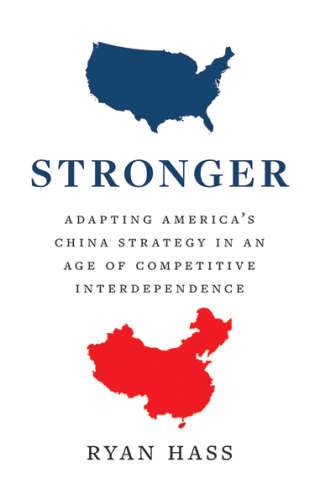
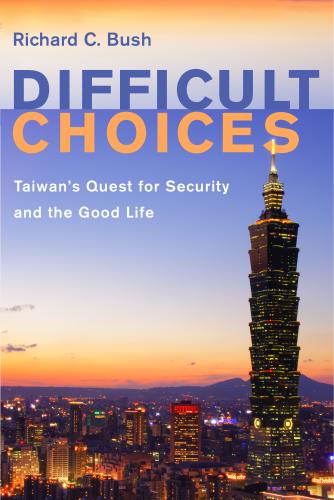
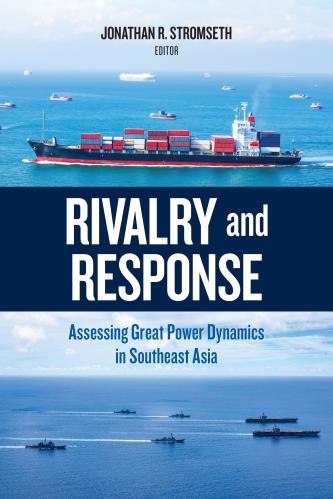
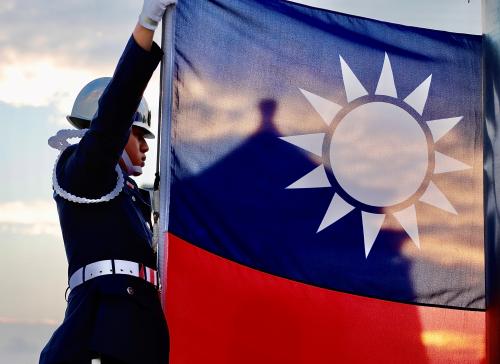
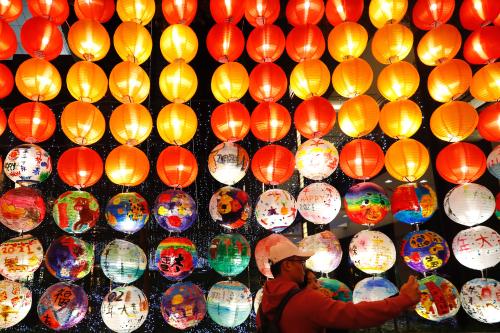
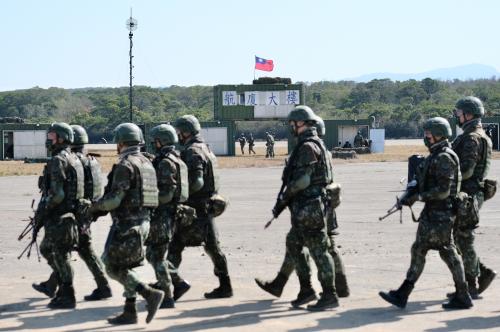



Commentary
Taiwan needs assuredness, not alarm
May 18, 2021